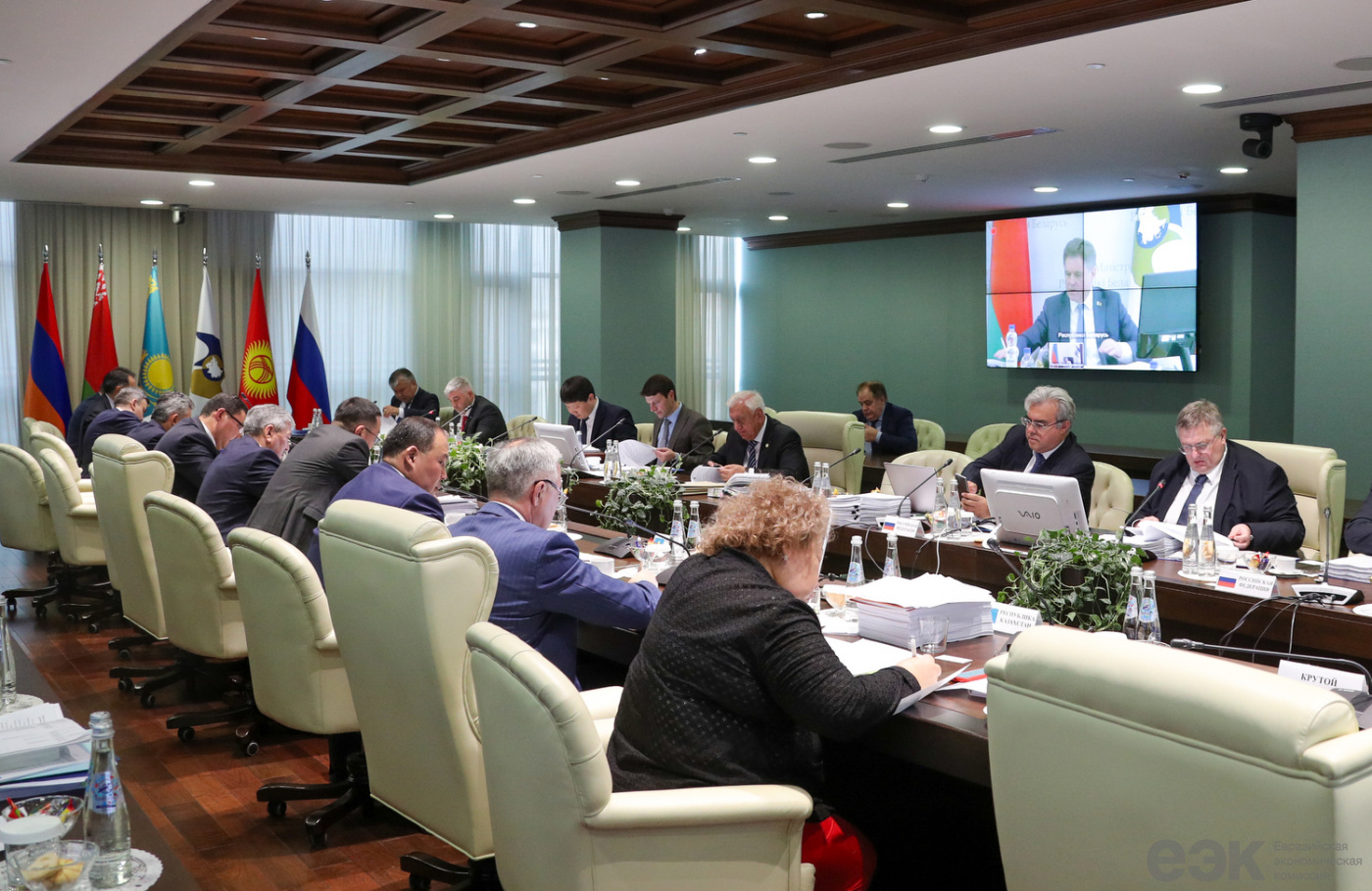
Therefore, until April 1, 2024, the threshold for duty-free importation of goods by natural persons will be 1,000 euros and 31 kg for goods transported by a carrier or in postal items as well as goods brought in as luggage by all means of transport, except by air, or on foot.
The EEC Council adopted a decision to establish uniform rules for marking medicinal products, soft drinks, juice, as well as phones and laptops in the EAEU countries. The Member States will independently determine the introduction date and the procedure for marking products with identification means in their territory, notifying the EEC no later than six months before the start of these activities.
The EEC Council approved the development plan for the EAEU Integrated Information System (EAEU IIS) for 2024. In particular, a decision was adopted to significantly increase the financing of this sphere.
During the meeting of the Commission's Council it was reported on the success of the experiment on using navigation seals in transportation within mutual trade between the Republic of Kazakhstan, the Kyrgyz Republic and the Russian Federation. The experiment results confirmed the successful integration of information systems of authorized sealing operators and the technological readiness of the Republic of Kazakhstan, the Kyrgyz Republic and the Russian Federation to implement the Agreement on using navigation seals for monitoring traffic in the Eurasian Economic Union.
The EEC Council approved a list of electronic services for VAT taxation purposes. The list includes 14 services the rendering of which is carried out via information networks, including the Internet, and is impossible without using information technologies. According to the new rules, in case an electronic service is purchased cross-border in the EAEU territory from the approved list, VAT will be taxed at the location of the purchaser of such a service.
The procedure for assessing the scientific and technical level of the EAEU technical regulations and lists of standards used with them was approved. The document is aimed at bringing the requirements to products established in technical regulations in line with the modern development of science, technology, production and testing facilities.
The Agreement on administrative cooperation in weather forecasting and meteorological services sector was approved. The document was elaborated by the Commission to ensure efficient information exchange between the EAEU countries' regulators in the field of functioning of meteorological services in the single market mode.
Amendments to the Technical Regulation “On safety of meat and meat products” were adopted. The amendments establish permissible limits for deviations of the actual values of protein, fat, carbohydrates, and calorie content from the values indicated in the marking, with due regard to special aspects of manufacturing these products.
The EEC Council instructed the Board to change the effective date for a number of Board's decisions from October 1, 2023 to April 1, 2024 at its next meeting. These decisions regulate customs legal relations concerning the completion of transit declarations, declarations for goods, as well as the application of structures and formats of individual customs documents. The issue was considered by the Commission's Council at the initiative of the EAEU Member States' customs authorities.
The EEC Council approved draft rules for determining and allocating the capacity of interstate cross-sections and rules for mutual trade in electric power in the Union's common electric power market.
The EEC Council approved amendments to the Procedure for interaction between authorized bodies of the Eurasian Economic Union countries when introducing temporary sanitary, veterinary-sanitary and phytosanitary quarantine measures. The document was supplemented with definitions of the concepts "temporary veterinary-sanitary measures", "temporary sanitary measures", as well as the rationale for their introduction and content. The amendments made will enable the countries' authorized bodies to exclude different interpretations of concepts and will make it possible to apply in practice unified interaction approaches when introducing temporary measures.
The next meeting of the EEC Council will be held in the latter half of October.
